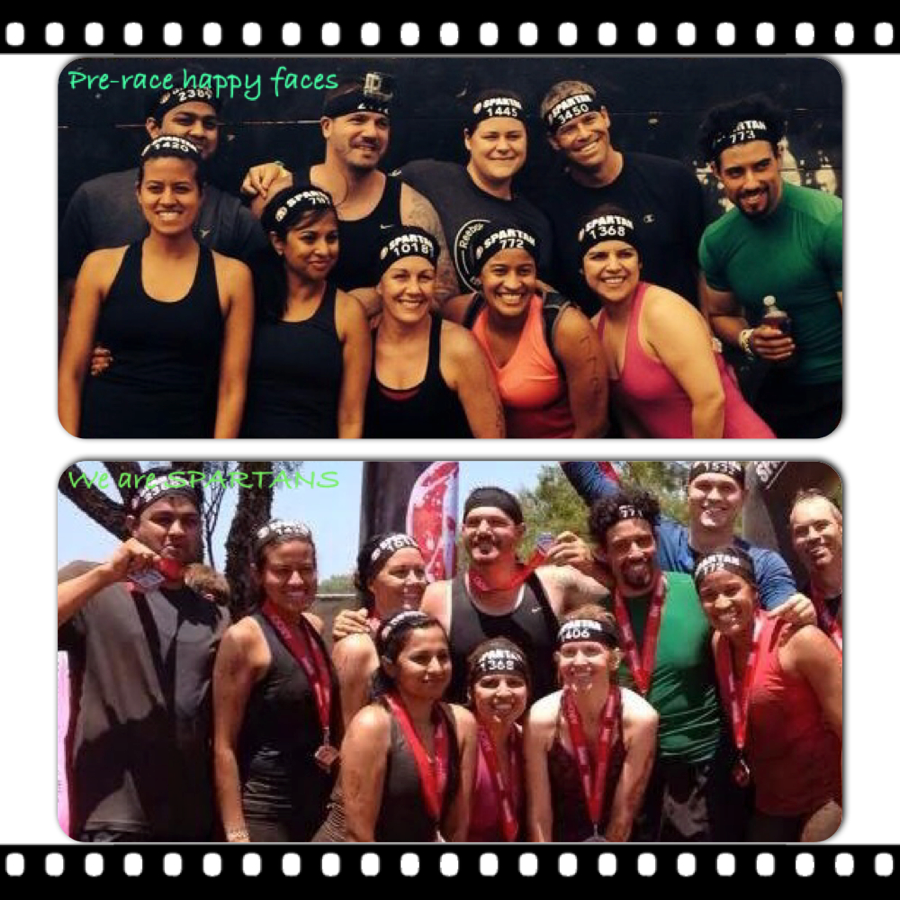

As a consultant I interact with different kinds of people everyday, and I see two common themes:
1. An unwillingness to be put in uncomfortable situations, which results in resistance to change.
2. A reluctance to put in the hard work to achieve a goal. Often that hard work is thought of as optional.
So I decided to put myself through something challenging and uncomfortable to see what it takes. This experience reemphasized what I was taught as a child—be prepared to wrestle through challenges and you will need grit to overcome them. Also, as you work through difficult situations, inspire others and be present in every moment. This is a powerful insight and I’ve learned that it delivers the best outcome.
The Spartan Race
My challenge? A Spartan race. If you’re not familiar with the concept, Spartan Race is the global leader in obstacle racing and was designed by eight insane ultra athletes. You can tackle a three-mile, 15-obstacle Spartan Sprint, an eight-mile, 20-obstacle Super Spartan, or maybe even attempt a brutal 12-mile, 25-obstacle Spartan Beast.
A close friend of mine introduced me to this idea of a Spartan Sprint a couple months ago and I just looked at him like he was crazy. How can I, the well-dressed consultant, drag myself through red dirt pits, roll in mud under barbed wire, run across rocky terrain, and traverse up a 15-foot-tall inclined wooden board on an 80- to 90-degree afternoon? No sunscreen will shield me from that.
I discounted the idea pretty quickly and decided my friend did not know me well.
Spartan Up!
As I tried to sleep that night, I kept rationalizing my decision. Something was bothering me in the back of my mind: Am I timid? Am I not up for a challenge? Do I not have the discipline to execute a goal?
I did not like the answers.
So I finally signed up for the Spartan Sprint 2014 in Austin. I worked hard, ran trails, and trained on obstacles. The more I struggled the more stubborn I got about it. I wanted to push myself through pain and come out of it stronger. It took determination to wake up early, run, and train. Saturday mornings were the most difficult. I hated it initially. The noise in my head kept popping back up: “You can sleep in just this one time,” or “You have proved in the past that you are up for challenges—this Spartan stuff is meaningless,” and similar excuses.
But I did not want to give up.
Race Day
The day of the race came and as I looked at my fellow racers, the demon in my head took over again: What was I doing here? This was, in fact, ridiculous. Some of these people were well built and the red dirt looked unappealing. Can I just cheer my friends and not race? Team players are important to the success of teams—I can just root for them.
My legs felt lifeless and I had to fight that feeling. I kept saying to myself, “Get to the finish line and do it well. All the discipline and time spent will pay off.”
I expected the race to be hard and would not allow my fortitude to waiver too much. It took grit and constantly pushing myself especially when I was really tired and wanted to give up. Fighting the demon in my head, who tried hard to convince me that finishing this did not mean anything, was a draining mental exercise. Getting myself to stay focused on the goal—the finish line—amid all this was quite a task. It put my integrity to the test (the 30-burpee penalty for failing an obstacle was on your honor). Lastly, I saw teamwork at play as people I did not know helped me as I slid down some obstacles and lost control.
The race was a fantastic experience. I ran about five miles on rough terrain and conquered 15 obstacles. It felt priceless. I had a blast and was proud of myself for finishing. I passed some racers demotivated and in tears—it was just too much for them. I saw some not-very-fit racers finish and break down crying—this meant the world to them and probably just what they needed to transform their lifestyle. I passed some racers with special needs who believed in themselves and this further inspired me.
A day after the race I was a little sore with a lot of bruises, scrapes, and nicks, but it felt great. I would totally do it all over again. My only thought afterward was could I have helped more people finish the race? The old saying, “If you want to go fast, go alone; if you want to go far, go together,” kept coming to mind.
Spartan Lessons
I gained a lot from my Spartan experience. Here’s what I learned:
– Set goals: Setting goals will help you engage in the right activity required to achieve those goals.
– Show grit: Expect to run into uncomfortable and challenging situations and demonstrate the courage to get over them. Luck is overrated.
– Work hard: I cannot over-emphasize the importance of discipline and the payoffs you get by investing time into the execution of a goal.
– Support each other: Surround yourself with like-minded people; this will help you push your limits and inspire them along the way.
– Have fun: This will keep you going when the going gets tough.
We have the same spirit some really great leaders and achievers had—Steve Jobs and Gandhi come to mind. They did not let adversity faze them. They kept going and that insurmountable mental strength made all the difference. We all know that the journey is as important as the destination. So work hard and try to enjoy every moment of achieving your dreams and goals, and help others reach theirs without judging them. When you do that life will start to feel very content and happy. And this feeling is contagious—it will spread quickly!
Contact Us
Let's talk!
We're ready to help turn your biggest challenges into your biggest advantages.
Searching for a new career?
View job openings